How exclusion became the driving force for democratisation
It is a widely held belief that political inclusion has been an integral part of Swiss life since women gained the right to vote in 1971. Democracy, however, is a work in progress. To this day, some people remain excluded from Swiss political life.
The move towards full democracy has happened in small, sometimes surprising, steps. One example is a historical 2020 vote in canton Geneva: 75% of voters agreed that citizens with mental or physical disabilities were entitled to full voting rights.
This resounding “yes” paved the way for 1,200 citizens previously excluded from the polls to cast their votes in elections and referendums, and even to stand for election.
Geneva thus became the first canton to adopt the United Nations Convention on the Rights of Persons with Disabilities, which Switzerland had ratified in 2014. Based on the Declaration of Human Rights, the UN considers any restrictions on universal suffrage to be unacceptable.
Competing perspectives
When it comes to political rights, views differ between the language regions of Switzerland. Whereas the conservative German-speakers often believe that only those who are fully integrated into Swiss society should gain political rights, French-speakers have a more progressive perspective: for them, membership in a social group is less important as a criterion.
History helps to explain this difference in perspective. The idea of universal suffrage was born in Revolutionary France where, at the end of the 18th century, natural law prevailed and challenged the general perception that political rights were a hereditary privilege.
This idea spread to Switzerland once the Helvetic Republic was proclaimed on April 12, 1789. The country adopted a unitary state model with representative democratic and human rights. The introduction of freedom of religion and conscience and freedom to settle as well as Swiss citizenship further contributed to the expansion of political rights. Men 20 years of age and older were the first group of people to benefit from this change when they were granted full voting rights in 1789.
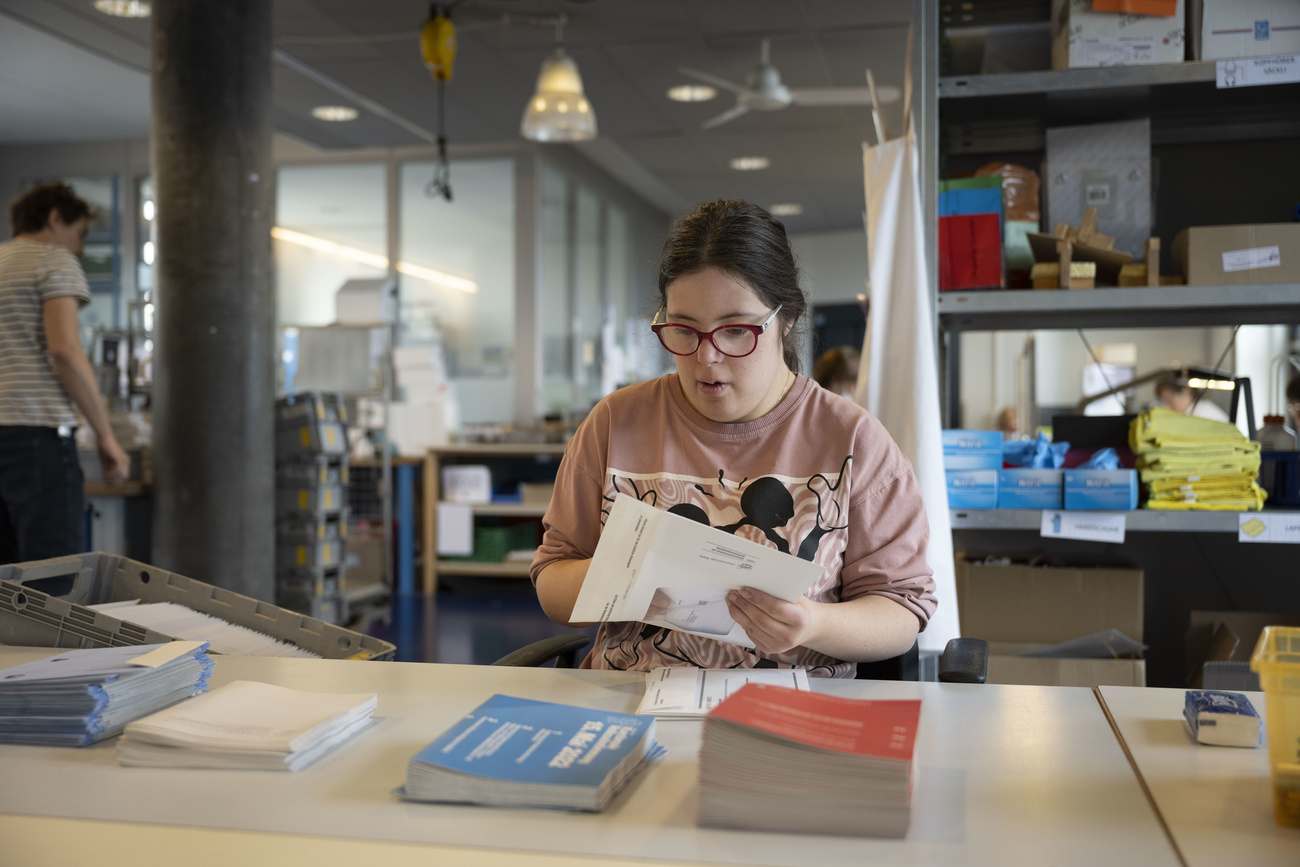
And yet, three years later, wealthy city-dwellers in Switzerland who thought progress had happened too fast urged France to change course. In 1801 France introduced selective suffrage, which allowed only wealthy tax-paying citizens to vote.
This series in several parts is tailored for our author: Claude Longchamp’s expertise makes him the man who can bring alive the places where important things happened.
Longchamp was a founder of the research institute gfs.bern and is the most experienced political analyst in Switzerland. He is also a historian. Combining these disciplines, Longchamp has for many years given highly acclaimed historic tours of Bern and other sites.
“Longchamp performs democracy,” was one journalist’s headline on a report about a city tour.
This multimedia series, which the author is producing exclusively for SWI swissinfo.ch, doesn’t concentrate on cities – instead its focus is on important places.
He also posts regular contributions on FacebookExternal linkExternal link, InstagramExternal link and TwitterExternal link.
Slowly the Old Regime was reinstated. Wealth, education, fitness for military service and belonging to a certain social group were re-introduced as criteria for gaining voting rights. Some regions even excluded people on the basis of their religious beliefs.

More
March ballots: some 1,200 physically and mentally disabled will vote for the first time
Small steps to democratisation
From that point on, democratisation happened in small steps punctuated by sometimes far-reaching exceptions. Cantons that followed the liberal movement and ratified a new constitution in 1831 abolished selective suffrage. However, the poor, paupers and servants remained excluded from political rights.
The UN Convention on the Rights of Persons with Disabilities states that the signatories (175 to date) shall guarantee people with disabilities the following rights:
- Protecting the right of persons with disabilities to vote by secret ballot in elections and public referendums without intimidation;
- Stand for elections;
- Effectively hold office;
- Perform all public functions at all levels of government.
If needed, the governments are obliged to facilitate the use of assistive and new technologies where appropriate, and at their request, allow assistance in voting by a person of their own choice.
Source: SwissExternal link Federal Law
The Federal Constitution of 1848 granted all Swiss citizens the right to vote and to stand for election at the cantonal level, no matter where they resided in Switzerland. But the poor, people whose businesses went bankrupt or who had their properties seized, convicted criminals, those detained without trial, the mentally ill, the mentally weak, and those considered “immoral” were sometimes left out.
Today’s estimates show that between 15% and 20% of the male adult population were not allowed to participate in political life at the time. The practice of excluding people because of their religion, which particularly discriminated against Jewish residents, was only abolished in 1866, after significant pressure from abroad.
In 1874 the federal government adopted a revised Constitution that took away the cantons’ rights to choose who to exclude. However, it took a long time to implement these changes as parliament rejected them three times. In 1915, the Federal Court finally declared that excluding people for tax reasons was unconstitutional.
Paradoxical though it may seem, Switzerland was considered a world leader in establishing and expanding people’s rights. However, when it comes to granting political rights, the government has always been hesitant. Switzerland is now among the countries where progress is stagnant.
Even today, most foreign residents do not have the right to vote as only Swiss citizens enjoy full political rights. However, when canton Jura was founded in 1979, it chose to grant non-Swiss citizens the right to vote in cantonal elections and votes. A few French-speaking cantons followed suit and granted foreigners the right to vote in cantonal or municipal elections. Critics, though, claim that voting rights for foreigners could increasingly undermine political rights.
Exclusion drives democratisation
Until the 1990s, voting rights were tied to a person’s place of residence but this changed when postal voting was introduced. It allowed the Swiss abroad to vote on a cantonal and federal level, but without electronic voting, some obstacles remain.
With its vote to grant people with severe mental or physical disabilities full political rights, canton Geneva became the latest democracy pioneer in Switzerland.
Rolf Graber, a historian from Zurich and expert on democratisation, says that the fight for universal suffrage was instrumental in the Swiss democratic process. He believes exclusion motivated these groups to band together and stand up for their rights.
Canton Geneva has led the way on at least three occasions: in abolishing the exclusion of the poor, introducing cantonal voting rights for women, and granting foreigners political rights.
Its ability to look at the individual person has allowed Geneva to push through groundbreaking rules and regulations without following the Swiss mainstream.

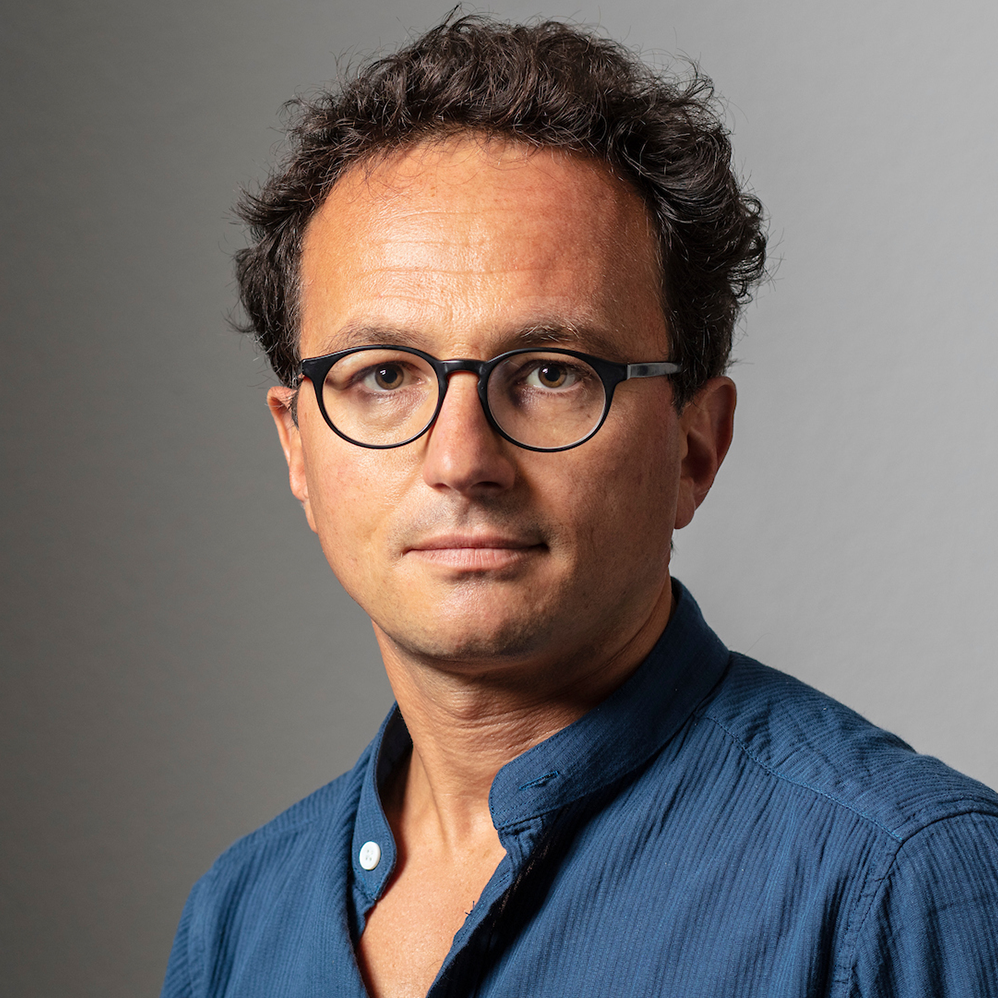










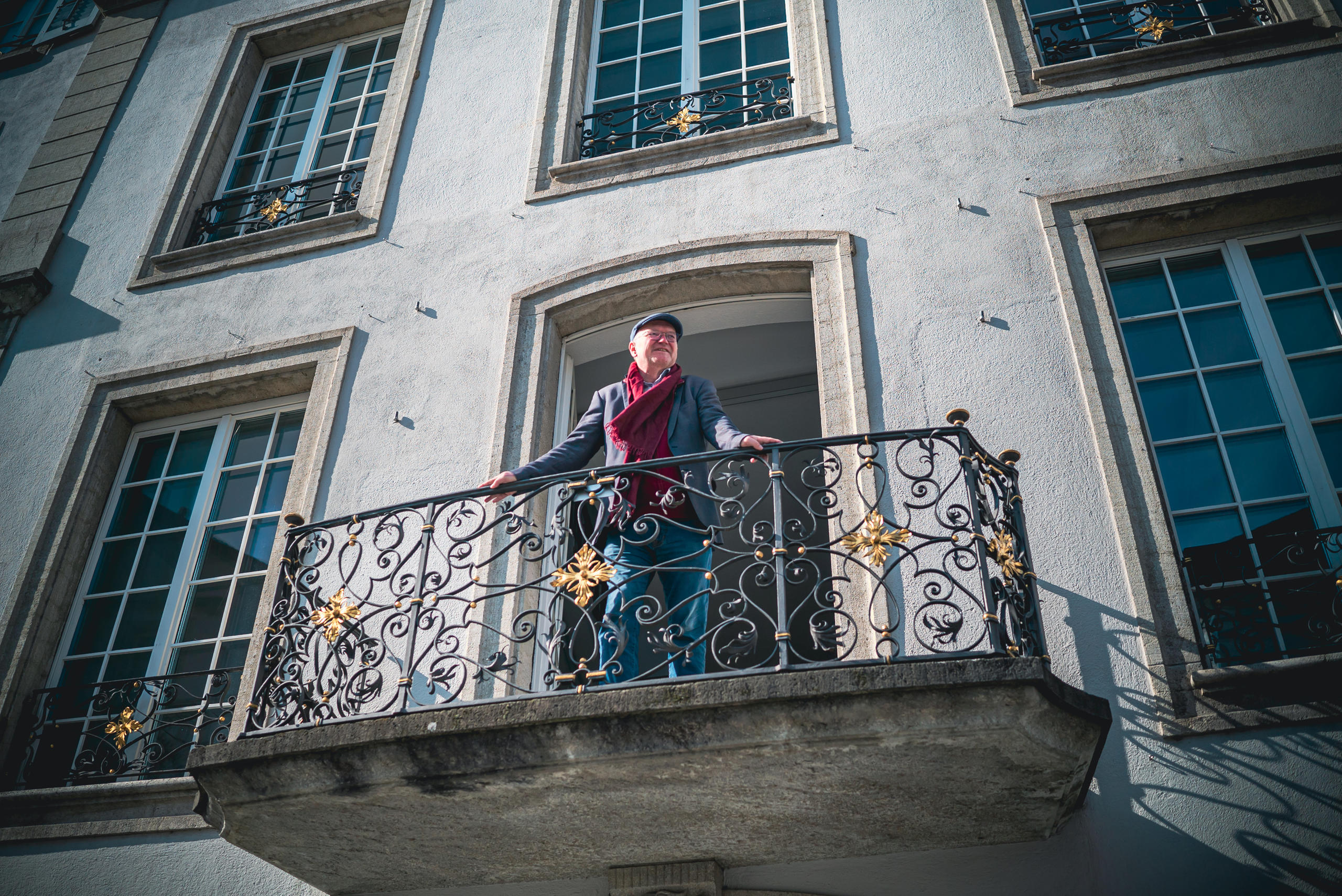
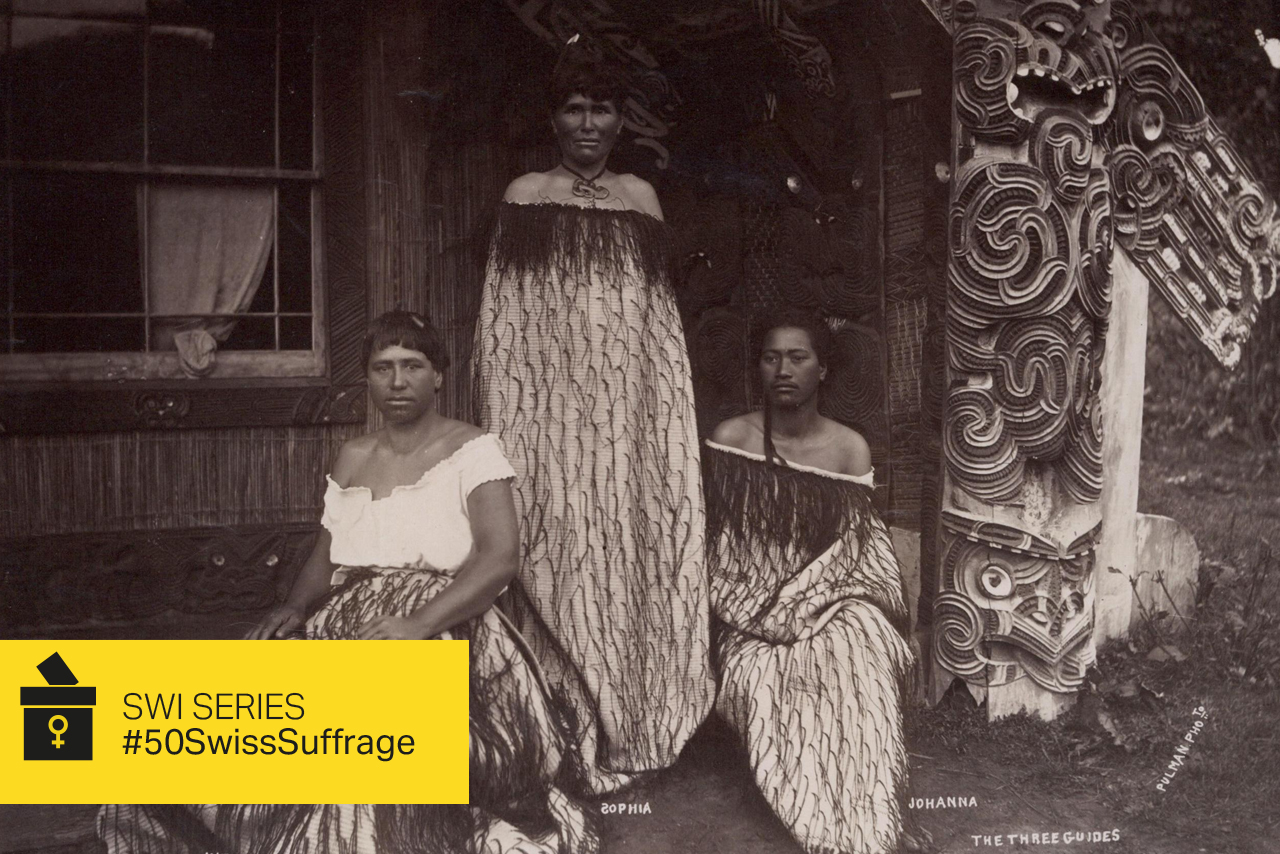
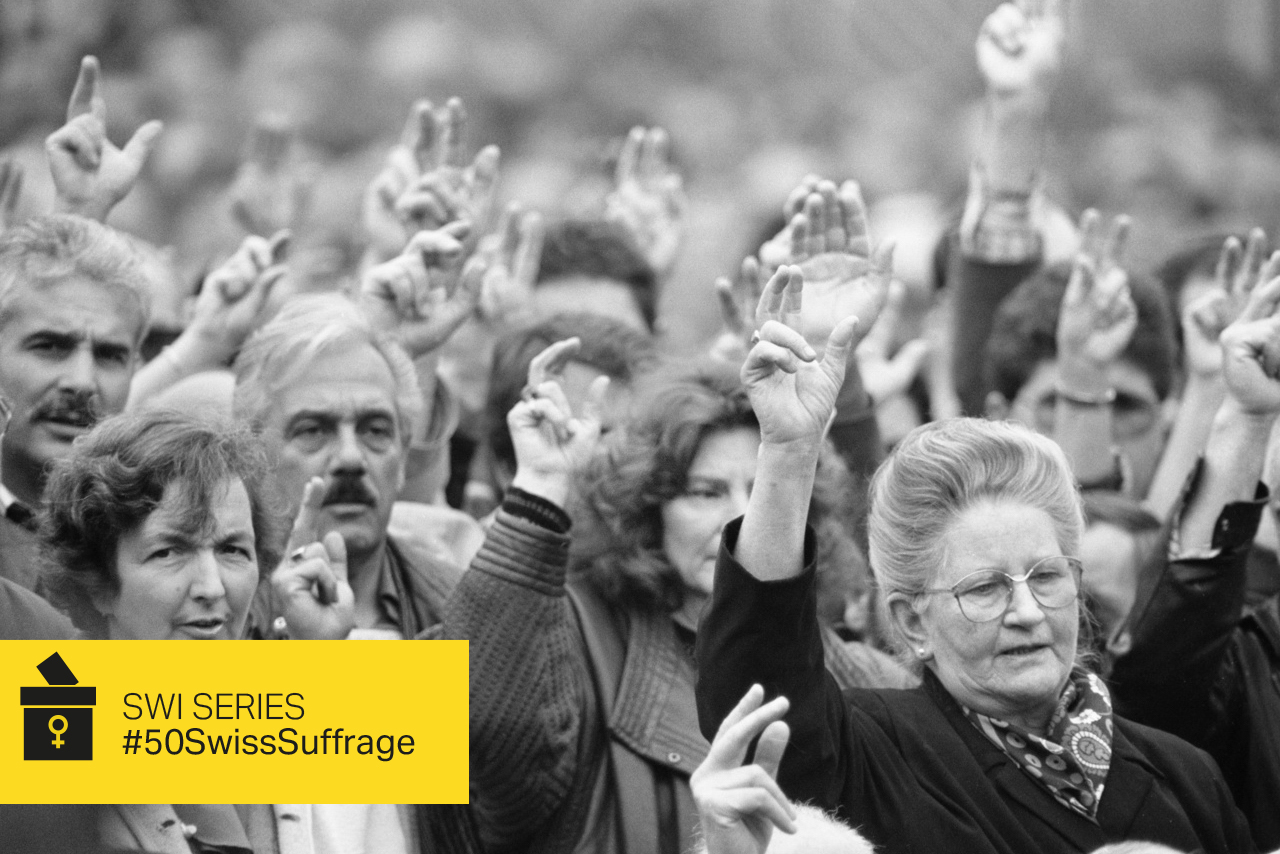
You can find an overview of ongoing debates with our journalists here . Please join us!
If you want to start a conversation about a topic raised in this article or want to report factual errors, email us at english@swissinfo.ch.